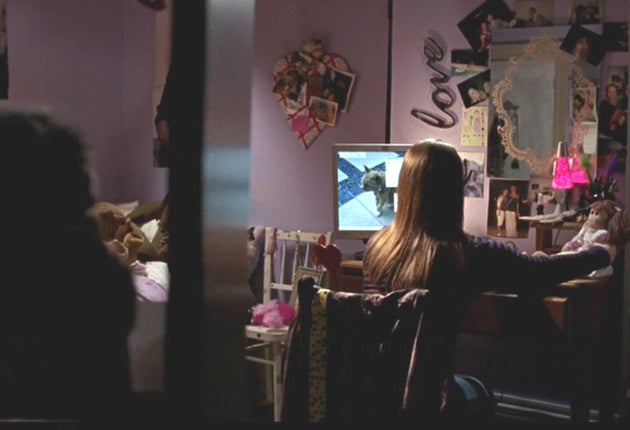Claire Beale on Advertising: Parties primed for a digital election

Your support helps us to tell the story
From reproductive rights to climate change to Big Tech, The Independent is on the ground when the story is developing. Whether it's investigating the financials of Elon Musk's pro-Trump PAC or producing our latest documentary, 'The A Word', which shines a light on the American women fighting for reproductive rights, we know how important it is to parse out the facts from the messaging.
At such a critical moment in US history, we need reporters on the ground. Your donation allows us to keep sending journalists to speak to both sides of the story.
The Independent is trusted by Americans across the entire political spectrum. And unlike many other quality news outlets, we choose not to lock Americans out of our reporting and analysis with paywalls. We believe quality journalism should be available to everyone, paid for by those who can afford it.
Your support makes all the difference.There's no point denying it, advertising doesn't always tell it quite like it is. Of course, all ads have to be honest and decent and true. There are rules about that. But sometimes the truth isn't quite pretty enough.
Take David Cameron. Is he really the unblemished cherub of the recent Tory poster campaign, even-toned and smooth as a baby's bottom? Or did the leader of the opposition allowed himself to succumb to the deft touch of a skilled airbrush artist? Do dogs bark?
Everyone had some fun with it though. "If you can't get your photograph right, it's pretty difficult to get your policies right as well," Gordon Brown jibed at Prime Minister's Questions.
With Peter Mandelson, Douglas Alexander and Harriet Harman steering the Labour election strategy, Brown had been "airbrushed out of the whole campaign" Cameron bristled back. And what it actually said on Cameron's poster ("We can't go on like this. I'll cut the deficit, not the NHS") got rather depressingly overlooked.
We're about to embark upon what should be one of the most exciting election campaigns – certainly from an advertising point of view – that we've ever seen. This will be our first truly digital, social media-powered election, and if the main parties have learnt any lessons at all from Barack Obama's award-winning election campaign ad strategy, we should be in store for some fascinating marketing tactics, led by Saatchi & Saatchi for Labour and Euro RSCG for the Conservatives.
The big, expensive poster campaigns that have dominated political advertising for decades will probably remain a cornerstone of electioneering, but this time round they must be subjected to a more nimble and targeted digital marketing push. So the Tories didn't just launch a £400,000 poster campaign, they also used Google Moderator to kick-start an online consultation on their health policy.
For the Labour Party, though, the web will be an even more vital line of communication; Labour simply can't match Tory spending power in traditional media. It seems the Tories have a marketing war chest of more than £25m, while Labour is said to have only around a third of that to play with, and it is keeping it's purse pretty firmly clasped until closer to the election.
But in the digital world, ideas and their connectivity count for more than the size of your wad. So the Labour Party wasted no time capitalising on airbrush-gate online, and interestingly took their lead from the online community itself.
You see, it wasn't long before Cameron's poster had inspired a raft of mock ads on the internet. On the spoof website mydavidcameron.com "ads" included an eerily perfect picture of Cameron alongside the Madame Tussauds logo. The website even offered a template so that Labour supporters could create their own anti-Cameron ads.
And so the Labour Party joined the fun, took the bait and used the template to create its own version on the home page of its website. Labour HQ's ad had a pristine Cameron alongside the line: "Is what you see what you'd get?" followed by the words, "Airbrushed for change."
But before you think the two main parties really have learnt the lessons of Obama and moved whole-heartedly into the digital age, a new study from search agency Tamar suggests that both Labour and the Tories have some serious holes in their digital strategy.
Apparently neither David Cameron or Gordon Brown own their own name on Twitter and unofficial, damaging websites carrying the names of the Conservative and Labour leaders, including davidcameron.com and gordonbrown.com, consistently rank high on the first page of Google search results.
As the two parties fight digital impact, though, it's also worth remembering the other lesson from Obama's award-winning election campaign. Yes, it was social-media-ed to the max, but Obama also managed to outspend the opposition by an impressive four to one. The overwhelming majority of that spend was in traditional media.
Best in show: Beatbullying (M&C Saatchi)
Our social media revolution has mostly been a good thing. But there is plenty of evidence to show that social media can also be a powerfully damaging tool when it is abused.
A hard-hitting new film by M&C Saatchi for the charity Beatbullying is designed to help victims of cyberbullying by promoting the CyberMentors online advice and support service.
As the ad opens, we watch a young girl quietly sewing in her room. It's not until the end of the commercial that we see she has actually been sewing up her own mouth. It is a truly chilling image and one which simply refuses to be ignored.
Join our commenting forum
Join thought-provoking conversations, follow other Independent readers and see their replies
Comments